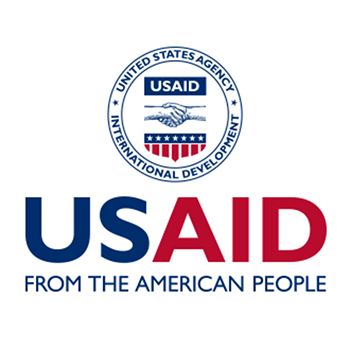Center on Conflict & Development Partners
Working Across Disciplines at Texas A&M University
College of Agriculture and Life Sciences: At the College of Agriculture and Life Sciences, we discover, develop, communicate and apply knowledge that helps change lives all over the world. Our innovative academic programs both depend on and inspire the research of our eminent faculty. Guided by Texas A&M University’s vision and mission, we view our people as our most valuable assets. We focus on six priorities to best advance the work of our students, faculty and staff. Learn more at http://aglifesciences.tamu.edu. The Howard G. Buffett Foundation Chair on Conflict and Development is based in the Department of Agricultural Economics.
ConDev is the only entity within the Texas A&M University System specifically chartered to work on mitigating conflict in conflict-affected areas.
The Bush School of Government and Public Service: Founded in 1997, the Bush School of Government and Public Service has become one of the leading public and international affairs graduate schools in the nation. One of ten schools and colleges at Texas A&M University, a tier-one research university, the School offers master’s level education for students aspiring to careers in public service. The School’s philosophy is based on the belief of its founder, George H.W. Bush, that public service is a noble calling—a belief that continues to shape all aspects of the curriculum, research, and student experience. Learn more at http://bush.tamu.edu
Department of Political Science: The Department of Political Science offers undergraduate and graduate coursework in American politics, comparative politics, international relations, methodology, normative political theory, public administration, public law, public policy, and race and ethnic politics. The department is one of the largest in the College of Liberal Arts, with approximately 1,000 undergraduate majors, more than 50 graduate students, and a faculty of more than 40 tenured or tenure-track faculty members. Faculty participate in college-level interdisciplinary programs, including Women’s and Gender Studies and International Studies. Learn more at http://politicalscience.tamu.edu
Texas A&M Health Science Center School of Public Health: The mission of the School of Public Health is to improve the health of communities, with emphasis on rural and underserved populations, through education, research, service, outreach and creative partnerships. At the school, our professors care about impacting the community with their research as well as their students. Professors have research projects ranging from emergency preparedness to community health development. Yet, each of them share a passion for learning. Students use faculty as advisors, and each student participates in a practicum during their stay. Students have conducted epidemiologic studies, assisted in programs/centers of faculty, and many others have served as interns in Texas and abroad. Learn more at http://srph.tamhsc.edu
Conflict & Development Foundation
The Conflict and Development Foundation's mission is to study and discuss the relationship between conflict and international development in the hope of eliminating hunger, poverty, and violence in the developing world.
The Conflict and Development Foundation partners with applied educational and scientific institutions such as the Howard G. Buffett Foundation Chair on Conflict and Development at Texas A&M University, the Norman Borlaug Institute for International Agriculture at Texas A&M University, other United States land-grant education and research institutions, as well as like-minded non-governmental and private-volunteer organizations working to end conflict, poverty, and extreme hunger.
Learn more about CDF by sending an email to CDF@condevcenter.org
Ecoexist
Ecoexist is a five-year initiative to reduce human-elephant conflicts in the northern Okavango Delta of Botswana and surrounding regions. Through research, policy planning, and collaborative efforts with the private sector, the program seeks to:
Conduct satellite collaring telemetry studies and population surveys of elephants to record elephant numbers and movements in northern Botswana, and inform national and regional elephant management strategies.
Inform land use planning to consider elephant movement corridors and allow people and elephants to share resources and space.
Improve short-term strategies for conflict management by working with and for the government and communities to develop a Community Based Conflict Mitigation approach that incorporates shared responsibility, human-human conflict resolution, and a set of holistic and innovative mitigation techniques.
Improve farmer resilience to the effects of elephant crop-raiding by improving agricultural techniques, including short-cycle crops and conservation agriculture.
Facilitate private sector support for community-based tourism and other opportunities for people to gain economic benefits from living in close proximity to elephants.
Ecoexist staff are working closely with villagers and traditional authorities in the Okavango, and with policymakers, land-use planners, NGOs, local universities, and the safari tourism industry. Learn more about Ecoexist on their website at http://www.ecoexistproject.org/

The Howard G. Buffett Foundation
Established in 1999, the Howard G. Buffett Foundation (HGBF) is a private family foundation working to improve the standard of living and quality of life for the world’s most impoverished and marginalized populations. HGBF looks for opportunities where their funding is the catalytic capital that seeds sustainable, transformational change.
HGBF focuses funding in three main areas:
- Food security;
- Water security; and
- Conflict mitigation, resolution and post-conflict development.
Learn more at http://www.thehowardgbuffettfoundation.org/
 U.S. Agency for International Development – Higher Education Solutions Network
U.S. Agency for International Development – Higher Education Solutions Network
USAID created a constellation of eight Development Labs that harness the intellectual power of great American and international academic institutions and that catalyze the development and application of new science, technology, and engineering approaches and tools to solve some of the world’s most challenging development problems.
These Labs help USAID and the development community discover more innovative, results-driven, efficient, cost effective and accessible solutions to global development challenges in areas such as global health, food security and chronic conflict. The eight Development Labs, created by HESN, enable USAID to:
- Improve its understanding of development problems and solutions through better data and analytics
- Test, evaluate, and catalyze technologies for development
- Design, create, and incubate revolutionary approaches in addressing development problems including the incubation of new low-cost technologies and innovations
- Promote entrepreneurship to sustain and scale these tools and approaches; and harness the enthusiasm and interest of students for development.
Learn more about the USAID HESN at http://www.usaid.gov/hesn